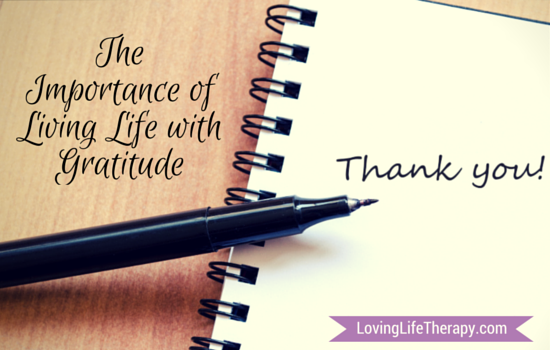“What if you woke up today with only the things you thanked God for yesterday?”
It’s the perfect time of the year to discuss the benefits of introducing a little gratitude into daily life. Gratitude is defined as “readiness to show appreciation for and return kindness.” Director of the Center for Developmental Science at UNC-Chapel Hill, Andrea Hussong, recently stressed the importance of fostering gratitude in ourselves and in our children.
“Adults who practice gratitude sleep better, have stronger immune systems, lower blood pressure, reduced anxiety and depression, and more satisfied relationships,” she explained.
It’s important to exercise gratitude like a muscle. Strengthening it can take a lot of time and practice, but once you begin to see results you will be — well, grateful!
Austrian Psychologist and Holocaust survivor Viktor Frankl famously said that “Between stimulus and response there is a space. In that space is our power to choose our response. In our response lies our growth and our freedom.” This mentality helped him to survive one of the most traumatic events in human history.
Choosing to devote our attention to the things we are grateful for — family, health, a bed to sleep in — can greatly outweigh the problems that frustrate us. Every event in life presents us with an opportunity to react positively and gratefully, we only need to learn how to make that our default. Try out a few of the tips below and begin to experience your own world through rose-colored glasses.
Keep at Gratitude Journal
Often times we forget the minor events that occur in a given day, but writing them down in a diary or journal can help us to recall them later. Imagine if we only wrote positive things in that journal — when we came back to it later it would seem that things were going very well for us in the time that we were writing. This is the idea of a gratitude journal.
Throughout or at the end of each day, write down things that you appreciated, or that made you smile. Alternatively, try writing these things on scraps of paper and filling a jar with them throughout the year. Then read them before the start of the new year, and remember all the wonderful things that happened to you.
Keep in mind, your gratitude journal doesn’t need to be a lot of work. Even just jotting down three one-word sentences a night can make a difference in your life.
Teach Yourself to Look on the Bright Side
“Looking on the bright side” or cognitive restructuring is a process utilized in Cognitive Behavioral Therapy (CBT) where you counteract negative thoughts using positive alternatives. Whenever a frustrating or depressing thought enters our heads, we can create a list of alternative thoughts and realities to replace it and balance ourselves out again.
Much like the gratitude journal, it can sometimes help to write these things down. Create a chart with columns for negative thoughts and alternative positive thoughts, and rows for the dates. When you have a negative thought (especially a recurring one) write it in the negative column, then fill the adjacent column with alternative positive thoughts that are more helpful and encouraging.
Help Others
One of the best ways to feel appreciation is to feel appreciated. When we contribute to a cause locally, nationally or globally and we are certain to feel a sense of connectedness and personal value. Seeing the things that other people are grateful for — medicine, a meal, some shelter — is an incredibly effective reminder of how fortunate we really are.
If more people employed this last little bit of advice and worked to spread positivity, the world would seem much more accommodating and friendly. Be the one to take that first step.
Other Ways to Bring More Gratitude to Your Life
- Send thank you cards. Test yourself this year and try this kit that comes with 52 note cards so you can send one thank you a day, all year.
- Meditate. Spending even a little bit of time in your day focused on gratitude can make a difference. Not sure where to start? Try out this gratitude meditation from Chopra Center.
- Set reminders on your phone. It’s easy to forget to stop and be thankful. So use your phone to set reminders throughout the week to be grateful for the things in your life that you may take for granted.
Living with more gratitude can bring more happiness and health to your life. So what are you waiting for. Start living with more mindfulness today.


 How to Be a Lifelong Learner
How to Be a Lifelong Learner